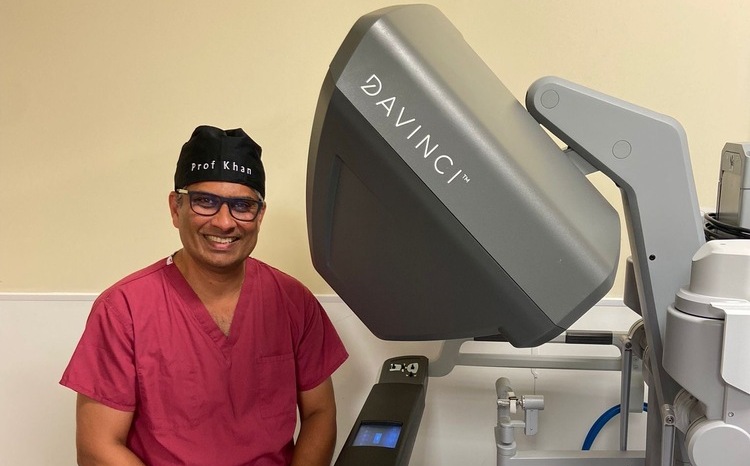John Newton: Interview
- 1 February 2016

“Fun” is not a word often associated with the implementation of IT in the NHS.
But John Newton tells Digital Health it is a “fun time” to be leading the National Information Board, following significant endorsement of its plans in last November’s Spending Review, which promised that £1 billion will be invested in health technology over the next five years.
Newton, who is also chief knowledge officer at Public Health England, took over as chair of the board following the departure of Tim Kelsey in December last year.
He will serve in the role until the summer when a more permanent replacement is due to be announced.
A high priority for him is to keeping the momentum going following the departure of Kelsey, NHS England's director of patients and information, for Australia in December.
He acknowledges that he “was very much the driving force in setting up the NIB", which was initially set up to co-ordinate the activities of the different national bodies with responsibility for IT policy, commissioning and delivery in the NHS, but which has emerged as a significant force in its own right.
“[Kelsey] has done a fantastic job in getting us here, but there’s recognition we’re in a new phase,” he says.
The NIB today brings together national health and care organisations from the NHS, public health, clinical science, social care and local government; and Newton is keen to keep the collaborative feel of the group.
“We’ve got genuine input from a large range of NHS bodies, but also our independent members and voluntary sector as well. That’s quite unusual and we need to keep that consensus going.”
Fun times ahead
Treasury documents relating to last November’s Spending Review revealed that the government will invest £1 billion health IT over the course of this Parliament.
The final figure and details of the investment are yet to be announced, but Newton says this is not slowing the NIB down. The board has 25 programmes of work ongoing as a result of the 'Personalised Health and Care 2020' framework that was issued in 2014 to support the work of the 'Five Year Forward View' plan to return the NHS to financial balance.
Not all of these are dependent on final funding details being announced.
“We feel confident that we have been given strong endorsement by government because of the competitive nature of the Spending Review. Of course, you never have as much as you would like, but we have enough to drive forward some priorities and the most important programmes, which will make a real difference to services and patient care.
“This is a substantial programme that will make a substantial difference to health and social care,” he adds.
The biggest challenge is the volume and “sheer scale” of work required to deliver a paperless NHS at the point of care by 2018, and one using digital, interoperable care records by 2020, which is the government’s aim.
“In terms of the sheer volume of activity and change required it’s fairly daunting,” Newton admits.
However, there are programmes in train that do not require large amounts of money, such as an app endorsement programme, which is being funded via Public Health England. Others, such as defining interoperability standards, they “just need to press on with."
Engaging with patients and clinicians
Newton says much of the important work of the NIB over coming years is about better engagement with the public and empowering people to take responsibility for their health, via development of things like the NHS Choices website and the endorsement model for NHS apps. This is being developed to replace the apps library, which was abruptly shut last year following external concerns about the security and effectiveness of some of the apps in it.
“The NHS has enough resource to do everything it needs to do, if we had clearer engagement with the public then the whole enterprise would be much more effective and efficient,” he explains.
There’s also a programme around developing a high level of trust with the public about the use of their data.
Newton says the NIB has made less progress in this area than it has in others as it has been largely focusing on the technology-enabled programmes, but it recognises that all of the work to get systems in place and data flowing freely will, “come to nothing if we don’t have the public behind us."
A further workstream is about training and leadership for health professionals and is being run by Health Education England. This involves a number of programmes to ensure staff have basic digital skills.
“We are taking a view of the NHS workforce and making sure that we have the right level of support targeted for people according to their need. It’s a massive task to influence the training and education of the NHS workforce,” he says.
Providing the motivation
Not only do staff need the skills to engage with technology, but also the motivation and this depends on the IT helping rather than hindering their care of patients.
“People in the NHS are very outcome focused and very keen to do the best for their patients and if we provide the technologies that allow people to do that and are easy to use then people will use them,” Newton says.
“So I think transformation is partly training and education, but partly about designing technologies that are innovative and people will adopt them on their own merits.”
Newton also believes the involvement of clinicians in driving the technology agenda is critically important and is putting a lot of effort into ensuring clinicians are engaged and have influence on the NIB programmes going forward.
He says the digitisation of the NHS will also involve changes in clinical practice and health professionals need to be prepared for this.
“The challenge is to help us understand what the new clinical models will look like so we can ensure the technology is the right technology for those models.”
“It’s about emphasising things that improve clinical quality and safety and release clinical time,” he says.
“The NHS is a huge organisation and making these transformations is not easy so if we’re going to do it we’re going to do it properly in a substantial way.”





